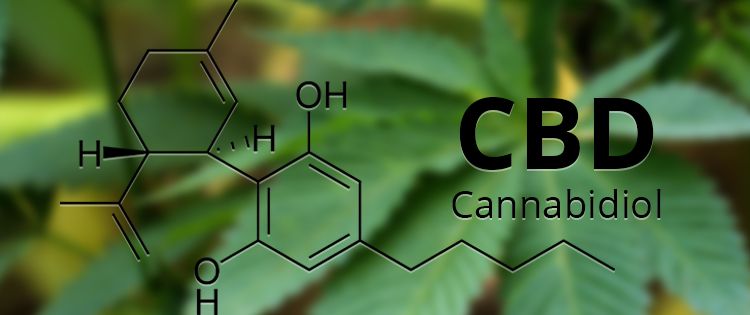If you want to reduce inflammation, you will have to fix your diet. You will need to avoid processed foods and rely on a lot of antioxidants in your diet.
Changing your diet and lifestyle can help in preventing a few chronic inflammations.
You can’t see or feel it, but inflammation on a cellular level can be harmful in the long run and responsible for many diseases.
Swelling (inflammatory response) is part of the human body’s natural recovery system and helps combat degeneration and cell damage. But it’s not only due to injuries and diseases.
Inflammation also occurs when the immune system usually functions without injury or infection. Since there is no cure, the cells that generally protect our immune system then begin to destroy healthy arteries, organs, and joints.
Dr. Varinthrej Pitis, an internist at the Scripps Clinic in Carmel Valley, said: “When you eat an unhealthy diet, do not exercise enough or are stressed, your body will respond by triggering inflammation.”
In the long run, chronic inflammation can have catastrophic consequences. Therefore, to reduce inflammation, the food you eat, the quality of your sleep, and the amount of exercise you do are essential.
What is Inflammation?
You can witness a sign of inflammation when a wound swells, turns red and hurts. Generally speaking, it is is the body’s immune system’s response to stimuli.
The irritant can be bacteria, but it can also be a foreign object – like carcinogenic chemicals we ingest.
For example, the wound has also become infected with bacteria, is leaking pus, or is not healing well. When the human body tries to fight harmful irritants, the process of inflammation has already begun.
Causes of An Inflammation
Many different things can cause it. Here are the most common ones:
- Pathogens (bacteria) such as bacteria, viruses, or fungi
- External injuries such as scratches or puncture wounds from foreign objects
- Introduction of chemical or radiation to the body

The disease or condition causing inflammation usually ends in “-inflammatory.” E.g.:
- Bronchitis: bronchitis.
- Cystitis: inflammation of the bladder.
- Dermatitis: an inflammatory skin disease.
- Otitis media: inflammation of the middle ear
Signs of Inflammation
Five symptoms can be signs of severe inflammation:
- Swelling,
- Heat,
- Redness,
- Loss of function and
- Severe pain.
Examples of loss of function include the inability to properly move the inflamed joints, worsening sense of smell if you have a cold, or difficulty breathing if you have bronchitis.
Inflammation does not always cause all five symptoms. Some cases are silent and cause no symptoms.
Effects of Chronic Inflammation on the Body
The early symptoms of chronic inflammation may be inconclusive and subtle signs and symptoms may not be present for a long time. You may feel a little tired or feel completely fine for a long time.
However, as inflammation develops, it begins to damage arteries, organs, and joints. It can cause chronic diseases such as obesity, heart disease, diabetes, cancer, degenerative diseases (like Alzheimer’s), vascular disease, and more.
The cells of the immune system that cause inflammation help build up fat in the lining of the heart’s arteries. These plaques will eventually rupture, causing a clot to form that can block the artery. When a blockage occurs, it results in a heart attack.
Taking a C-reactive protein (HS-CRP) blood test, which shows a sign of inflammation, is the most common way to measure it. To assess chronic inflammation, doctors also measure levels of homocysteine.
Finally, doctors test HbA1C (blood sugar measurement) to determine damage to red blood cells.
What You Can do To Reduce
With a healthy anti-inflammatory diet and lifestyle, you can control or even eliminate inflammation.
People with family health problems, such as heart disease or colon cancer, should discuss lifestyle changes with their doctor. These changes can prevent infection by reducing inflammation.
CBD gummies can be one of the best options to reduce inflammation. Let us tell you how CBD affects your body!

Anti-Inflammatory Food
The foods you choose are just as important as the medications and supplements you take for your overall health, as they can help prevent inflammation.
Consume more vegetables and fruit and products that contain fatty acids containing omega-3s. Cold-water fish like tuna and salmon, walnuts, soybeans, flaxseeds, and tofu are some of the best sources of Omega-3s.
Green tea, olive oil, garlic, blueberries, celery, grapes, and certain spices (turmeric, rosemary, and ginger) are other anti-inflammatory foods.
A great example of an anti-inflammatory diet is the Mediterranean diet. It focuses on fruits, vegetables, whole grains, and fish. It cuts down on unhealthy fats like red meat, butter, egg yolks, processed and refined sugars, and carbohydrates.
Eliminate Inflammatory Foods
Red meat and any food containing trans fats, such as fried foods, corn oil, margarine, and most processed foods, are inflammation-causing foods.
Following an anti-inflammatory diet and lifestyle can relieve symptoms and reduce the risk of many diseases.
Control Blood Sugar Levels
Simple carbohydrates such as white flour, refined sugar, white rice, and foods containing high fructose corn syrup should be limited or avoided.
A simple rule of thumb is to avoid white starchy foods such as rice, white bread, pasta, and foods made with sugar and flour.
Cooking revolves around lean protein and whole grains (such as vegetables, fruits, and whole grains such as brown rice and whole-grain bread). Check the label to ensure that “whole grains” or other refined products as the first ingredient.
Exercise
Do at least four to five times a week for 30 to 45 minutes of aerobic exercise and 10 to 25 minutes of strength or resistance training.
Lose Weight
Overweight people have a high inflammation effect. Losing weight can reduce inflammation vastly.
Deal with Stress
Chronic stress can cause inflammation. Use yoga, meditation, guided images, biofeedback, or other methods to relieve tension throughout the day.

Overview
It’s also important to remember that anti-inflammatory agents will pay off over time, improving your health and reducing your risk of chronic disease.
Chronic inflammation is painful and may lead to illness.
Your diet and lifestyle are causing or worsening inflammation in many cases. CBD can help you out. Still, have questions about CBD? Let us clear them!
For optimal health and well-being, we should strive to select anti-inflammatory foods to reduce the risk of illness and improve the quality of life.
- The Ultimate Guide to Delta 8 Disposable Vapes: What You Need to Know - March 8, 2024
- The Environmental Impact of CBD Production - August 28, 2023
- Cannabis In Thailand: A Green Revolution - August 15, 2023


